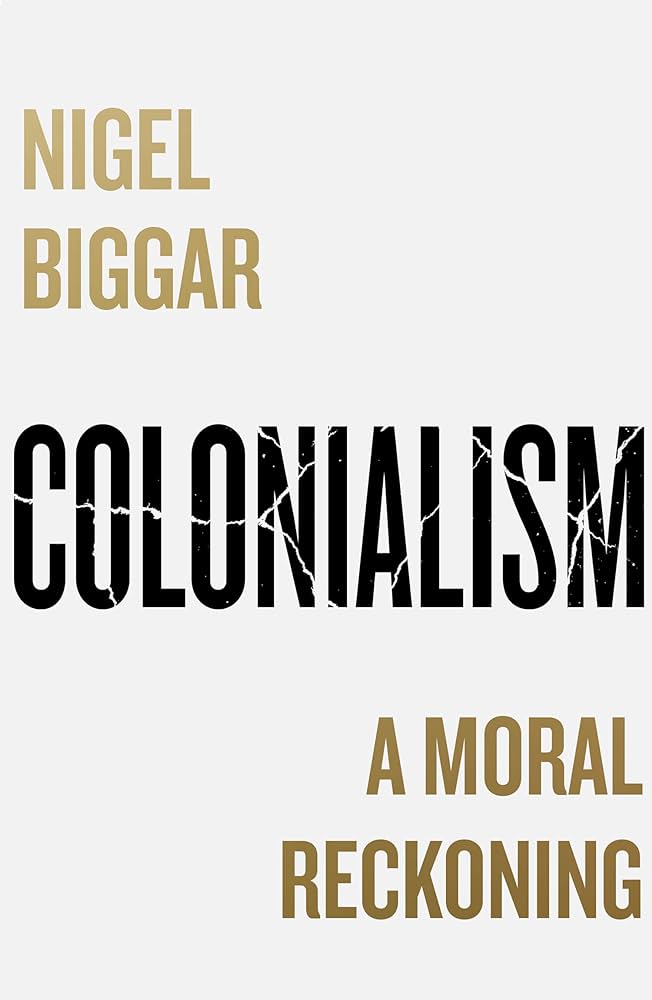Colonialism: A Moral Reckoning
by Nigel Biggar

Colonialism: A Moral Reckoning
by Nigel Biggar
London: William Collins, 2023
Reviewed by Ed Lengel
A century ago, every British schoolchild was raised to contemplate a map of the world painted red, delineating the largest empire the world had ever seen. Outside Europe, five of the world’s continents included territory under some degree of British control: from Canada to British Guiana in North and South America; India, Burma, and numerous Pacific islands in Asia; swathes of Africa from Egypt to South Africa; and, of course, Australia. It might have been even vaster had the United States not achieved independence in the eighteenth century. And following the First World War, large parts of the Middle East, along with some former German colonies, came under British administration via League of Nations mandates.
Great Britain was not the world’s only imperial power with colonies dotting the globe. France, Italy, Germany, Spain, Portugal, and even tiny Denmark got into the act. Nor were the Europeans the sole colonialists. The United States, having fulfilled Manifest Destiny by spanning North America, seized and ran former Spanish colonies in the Philippines, Cuba, and Puerto Rico at the beginning of the Twentieth Century; and the Ottoman Turks, though in decline, occupied or administered vast imperial territories until the end of the First World War. The British, however, were by far the most successful imperial power in the modern era, and their influence remains palpable across the globe today even after most of the British Empire has retreated.
This legacy makes the British, along with the Americans primary targets of opprobrium from self-described anti-colonialists long after colonialism, as such, has all but disappeared. Borrowing largely from timeworn Marxist arguments, leavened with ample doses of postmodernist theory, activists and activist historians have portrayed colonialism as a wholly white European phenomenon without parallel in human history. By their telling, in sum, colonialism was a monolithic European “project” motivated by capitalist greed for land and profit, and by white supremacist racism, that spread the institution of slavery across the world and oppressed millions. It was inherently violent and made life worse for all of its subjects. And it was genocidal, leading to large scale extermination of peoples, to say nothing of the “cultural genocide” of annihilating languages and ways of life. Colonialism, it’s said, is not just a historical atrocity, but a pernicious mentality. Minds and bookshelves need to be de-colonized. Penance needs to be done, and reparations need to be paid. Further, western institutions of thought, economics, and governance, need to be wholly uprooted and dismantled—though what will be erected in their place remains unclear. Such thinking is not only common, but axiomatic today, especially in the academies. Recently, a dark undercurrent of antisemitism, pointing to an alleged Jewish-capitalist campaign to dominate the world, has been shown to lie beneath much of this anti-colonialist rhetoric, now directed against Israel. Nevertheless, the rhetoric persists and even continues to spread.

Nigel Biggar
In Colonialism: A Moral Reckoning, ethicist Nigel Biggar of Oxford University painstakingly addresses each of the anti-colonialist accusations in turn as they pertain to the history of the British Empire. Addressing each theme by means of careful consideration of historical examples and primary sources, Biggar demonstrates that colonialism was above all a highly complex phenomenon with a variety of motivations and outcomes. Capitalism and the search for profit was only one among many motivations, and not a primary one at that. Racism was the exception rather than the rule, especially among government officials and colonial administrators. Nothing like actual genocide—certainly not even approaching the Nazi example—ever took place, and even accusations of cultural genocide are overwrought. Violence was far less common than alleged; in fact, the spread of imperial rule was generally accompanied by a pronounced decrease in violence, accompanied by the rule of largely benevolent law. Standards of government vastly improved, alongside widespread public education and much higher standards of living.
Biggar makes a significant part of his case by pointing out that in many parts of the world, especially in Africa, British colonialism was in large part a manifestation of the campaign to end slavery and the slave trade. It’s fair to say, indeed, that Great Britain did far more than any other nation on earth—at tremendous cost in lives and treasure—to end this global historic evil. It did so, moreover, from largely altruistic motives. This, along with much of Biggar’s case—backed up by copious footnotes—is not only convincing but unanswerable; and it’s telling that none of his numerous partisan opponents have made any real attempt to engage with him on point of historical research.
This readable, well-researched and spotlessly edited work focuses solely on the British example—not so much to advocate for colonialism, which Biggar does not do, but to point out the fatuousness of most modern anti-colonialist partisan rhetoric. Taking a global approach, in fact, he might have made his case even stronger; pointing out in greater depth, for example, the roots of colonialism and empire-building, especially among native societies in the Americas, Africa, and Asia. He might have emphasized that nations and societies that embraced the Marxist paradigm, such as Soviet Russia and China, have been the modern world’s leading modern colonialist powers, alongside countries such as Iran that never fall under the anti-colonialist hammer. In of itself, though, Colonialism: A Moral Reckoning is an important book. With other recent works such as Jeff Fynn-Paul’s Not Stolen: The Truth About European Colonialism in the New World (2023), and a series of books by American historian Bruce Gilley, it points the way toward the return of careful scholarship and reason in a field too often dominated by fulmination and sloganeering.
Ed Lengel is an author, a speaker, and a storyteller.




